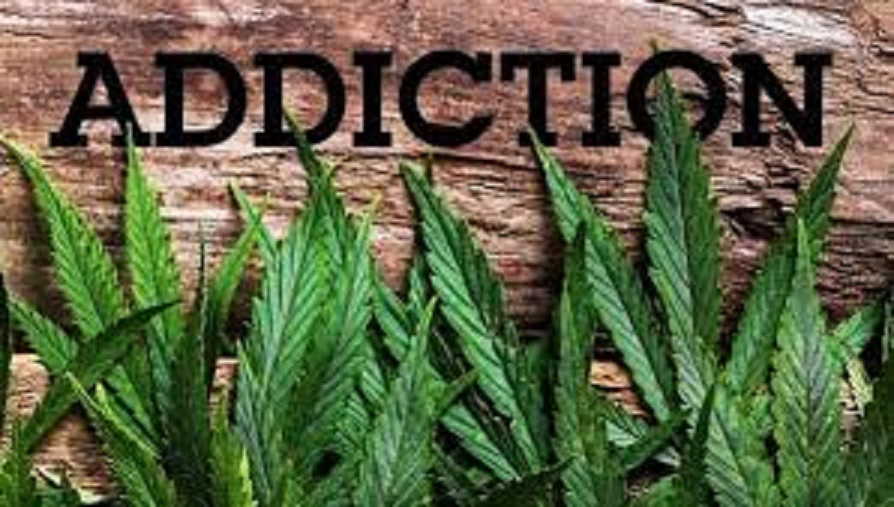One of the most common arguments against cannabis is that it is an “addictive drug”. People making this argument raise images of zombie-like addicts burgling houses and selling their bodies in dark alleyways for the money to finance their addiction. Leaving aside the fact that this fear-mongering is bollocks, the argument isn’t even accurate.
The scientific literature warns us of “irritability, anxiety, decreased appetite, restlessness and sleep disturbances“, sleep problems and “a constellation of behavioral, somatic, and mood symptoms.” It’s clear that to stop using cannabis often means that one encounters these problems, but they soon go away. People enjoy using cannabis, but use alone does not count as addiction.
Psychology Today ran an article that stated “The vast majority of those who use marijuana do so occasionally and exhibit no addictive symptoms — no increased tolerance, no cravings and no withdrawal. In other words, they can take it or leave it.”
It’s true that cannabis does not cause meaningful physical addiction. Something that’s really addictive is alcohol. Withdrawals from alcohol are known to cause delirium tremens, a phenomenon known as “the DTs”, which can kill the sufferer. If this is considered an acceptable side-effect of a recreational drug, then the physical addiction potential of cannabis is nowhere near objectionable.
The counter-argument to this is to say that cannabis can still be psychologically addictive. Psychological addiction is a kind of excessive habituation, where a person does not become medically ill but who can suffer “psychological symptoms like anxiety, mood swings and depression”.
At this point, another frightening image is formed. Here, instead of burglars, the stereotype is of slovenly, morbidly obese videogamers who lie around all day drinking Mountain Dew, completely without ambition aside from securing their weed supply, all social bonds long since abandoned in favour of the next puff.
The reality is that it’s not so much a matter of cannabis being addictive, as that people who do not have adequate levels of stimulation search for anything they can to fill the gap, and cannabis fills the gap. Anyone who smokes cannabis every day can tell you this – it’s frequently a matter of having nothing better to do.
As was demonstrated by the Rat Park experiments carried out by Professor Bruce Alexander, addiction is a function of both available addictive substances and a lack of environmental stimulation.
The Rat Park experiments showed that rats that lived in a stimulating and interesting environment, where a variety of exercise, food and mating opportunities were available, were up to 19 times less likely to consume water laced with morphine when compared to rats that lived in a standard laboratory cage. Given that rats are also social (or at least semi-social) mammals, this can teach us some things about the nature of addiction in humans.
The fact is that human society of 2019 has left some people behind to die, and for these unfortunate masses there is not a lot of pleasant stimulation to be had. Some of these people turn to alcohol to fill the gap, some turn to opiates, some turn to tobacco, some turn to cannabis. In all cases, the problem is not the drug itself, but an environment that fails to provide stimulation enough to meet people’s psychological needs.
If sufficiently fulfilling stimulation is available (or at least entertaining stimulation), people don’t tend to smoke cannabis all day. Therefore, the emphasis shouldn’t be on putting people in cages for using cannabis, it should be on creating a society that people freely want to engage in.
Most of the reason why cannabis users have had to take all the blame, instead of the people responsible for constructing society in a way that others want to escape it by using cannabis, is that the people responsible for designing society have all the power. Naturally, therefore, they design society in such a way that all of the other members of it have to take the blame for its failures.
What cannabis addiction ultimately amounts to is blaming cannabis for the problems caused by cannabis prohibition. Just because bored people with nothing to do sometimes smoke cannabis all day doesn’t mean that the cannabis forced them to do it. A healthy society that allowed people to freely use cannabis in (e.g.) coffeeshops, would soon find that people soon get bored of it and drift into other things.
The argument that cannabis is addictive is not sufficient to justify making cannabis illegal. The addictive potential of cannabis is minor, and the withdrawal symptoms from it not severe. Focus should be placed on organising society in a manner that inspires ordinary people to engage with it of their own free will, not punishing cannabis use.
*
This article is an excerpt from The Case For Cannabis Law Reform, compiled by Vince McLeod and due for release by VJM Publishing in the summer of 2018/19.

